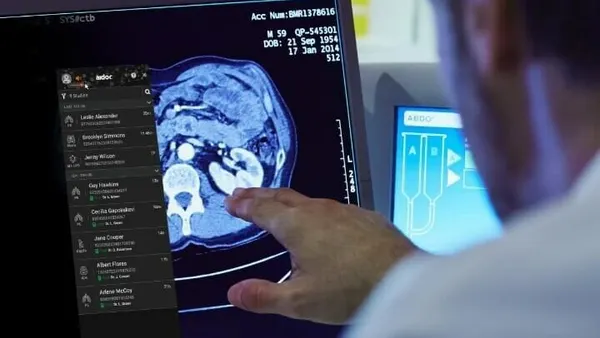UPDATE: Dec. 30, 2019: Hologic said Monday it completed the $205 million sale of Cynosure to an affiliate of investment funds managed by Clayton, Dubilier & Rice. Hologic said it received net cash proceeds at closing of roughly $142 million.
UPDATE: Nov. 21, 2019: In a securities filing Wednesday, Hologic said either party has certain rights under which it can terminate the divestiture agreement for Cynosure if closing fails to occur by March 18, 2020. The company also said it expected an additional write down of between $155 million to $185 million for Cynosure in the fourth quarter and there could be additional charges in the first quarter of 2020.
Dive Brief:
- Hologic said Wednesday it entered into a deal to sell off Cynosure, the underperforming medical aesthetics business it purchased for $1.6 billion in 2017.
- The Marlborough, Massachusetts-based medtech said it would net approximately $138 million in cash proceeds from a $205 million deal with an affiliate of investment funds managed by Clayton, Dubilier & Rice.
- Hologic expects the deal to close at the end of calendar year 2019 pending regulatory clearances. The company said approximately 825 employees will transfer with the Cynosure business.
Dive Insight:
The divestiture of Cynosure allows Hologic to concentrate on its core businesses of breast health and molecular diagnostics and rids it of products that have been an Achilles heel the past two years.
"Since we acquired Cynosure in 2017, it has significantly underperformed our expectations," CEO Steve MacMillan said in a statement Wednesday. "We believe this transaction will unlock value for Hologic shareholders, and at the same time provide Cynosure and its employees the best opportunity to succeed in the medical aesthetics marketplace."
MacMillan said the company's future M&A plans will concentrate on smaller, tuck-in deals rather than acquisitions rivaling the size of Cynosure.
Last quarter, the company beat revenue expectations, but growth was driven by its core diagnostic and breast health businesses. While Cynosure sales jumped 10.3% in the third quarter, those numbers were artificially inflated by refunds and rebates paid out in the fourth quarter of 2018, and sales would have been basically flat excluding that, MacMillan said.
Hologic had hoped its purchase of Cynosure, which was experiencing double-digit growth at the time of its acquisition, would allow it to ramp up its presence in the growing medical aesthetics market.
But the bet hasn't paid off. Instead, the Cynosure unit has struggled since Hologic purchased it, facing increased competitive pressures and troubles integrating its sales force. In 2018, Hologic was forced to write down Cynosure's value by $732 million.
And that wasn't the only trouble for the Cynosure unit. In 2018, the FDA warned women and their healthcare providers of potential risks from the unapproved use of energy-based devices for "vaginal rejuvenation" or cosmetic procedures. Cynosure made one of the devices included in the warning.
Hologic "fought hard over the last 2.5 years to try to right the ship," William Blair analyst Brian Weinstein said in an investor note Wednesday, but "revenue and profitability never caught up."
"We fully support the team's decision to walk away from this troubled asset and turn its efforts back to the core pillars that have made Hologic successful," Weinstein wrote.












